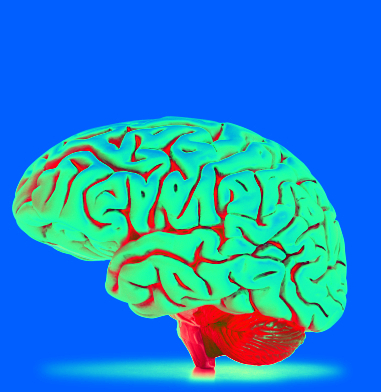COVID brain impacts assessed
 Scientists have identified changes to the human brain following SARS-CoV-2 infection, including in areas associated with smell and memory.
Scientists have identified changes to the human brain following SARS-CoV-2 infection, including in areas associated with smell and memory.
Researchers are beginning to understand the damaging effects of COVID-19, and whether these effects could persist in the long term, or can be partially reversed.
In one of the biggest-yet COVID-19 brain imaging studies, researchers compared brain scans from 785 people aged 51 to 81 in the UK - before and after mostly mild COVID infection with brain scans from the remaining non-infected controls.
“Significant, deleterious” long-term effects were seen when comparing the two groups, including changes in parts of the brain that affect memory and smell, and tissue damage in regions linked to smell.
Also, post-infected people showed larger cognitive decline than controls between scans. The authors say the documented effects were still seen after excluding the 15 people who had been hospitalised with COVID, implying even mild illness may have consequences for the brain.
Dr Sarah Hellewell - a Research Fellow in the Curtin University Faculty of Health Sciences and the Perron Institute for Neurological and Translational Science (who was not involved in the study) - says they are very important findings.
“The difficulty in understanding the effects of a disease is that you don’t ordinarily have data collected prior to disease onset, so it is difficult to say definitively whether research findings reflect that disease,” Dr Hellewell says.
“This research leverages the large-scale UK Biobank, which is a collection of health data and imaging such as MRI scans amassed from volunteers over the previous years.
“This research is really novel because the scientists could compare MRI scans from people who had previously joined the UK Biobank study to their MRI scans after a mild COVID-19 infection.
“This group was then directly compared with matching before-and-after MRI sets of people who did not have COVID-19, to allow researchers to determine the effects of mild COVID-19 infection on brain structure and cognition.
“The findings of the study are remarkable.
“The authors show that people who had mild COVID-19 infection an average of five months prior had thinning of brain tissue in several key brain regions including those related to behaviour and emotion, as well as those located close to the nose.
“They also had alterations in their white matter connections between different brain regions, and slight decreases in cognitive function.
“These findings may also apply to Australians, but people need not panic if they have had COVID-19.
“The brain changes observed were relatively small and on a group level, so not everyone had the same effects.
“More research is needed to know whether these changes remain, reverse or get worse over time, and whether there are treatments which could help.”
The full study is accessible here.








 Print
Print